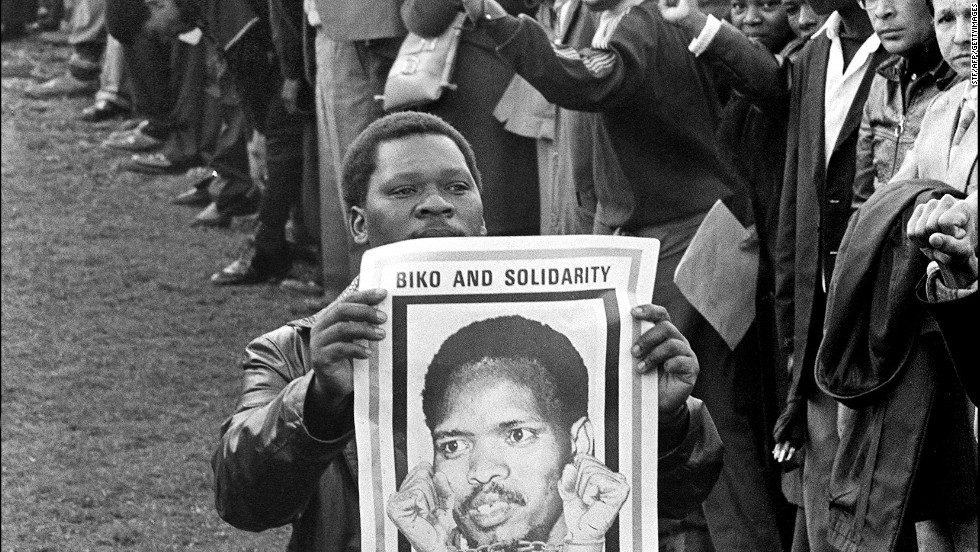This Day in History: January 28, 1997
Additional Date: January 28, 1997
Four apartheid-era police officers, including police Colonel Gideon Nieuwoudt who appeared before the Truth and Reconciliation Commission (TRC) admitted their role in the 1977 killing of Steve Biko, the leader of the Black Consciousness Movement (BCM). Biko was arrested on the outskirts of the Eastern Cape town of Grahamstown on 18 August 1977 and taken to apartheid security police headquarters in Port Elizabeth. He was accused of writing inflammatory pamphlets and "inciting unrest" in the black community. While he was in police custody in Port Elizabeth, Biko was badly beaten then driven 700 miles to Pretoria, where he was thrown into a cell. On September 12, 1977, he died naked and shackled on the filthy floor of a police hospital. The news of the political killing, denied by the country's white minority government, led to international demonstrations. After his death, local and international pressure forced the government to launch an inquest into his death. The policemen accused of his murder were cleared. Despite this, suspicions that Steve Biko was murdered in police custody continued to abound. In 1985 Dr. Benjamin Tucker who examined Biko before his death lost his license to practice in South Africa. After the fall of apartheid, five former policemen, Harold Snyman, Gideon Nieuwoudt, Ruben Marx, Daantjie Siebert, and Johan Beneke applied for amnesty for their role in the death of Steve Biko.
